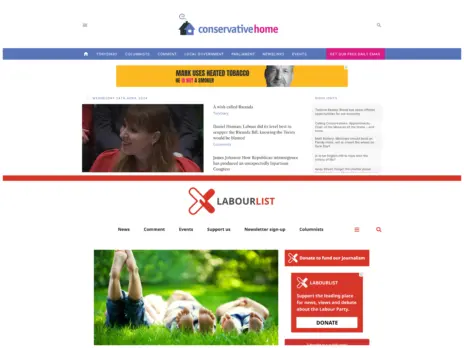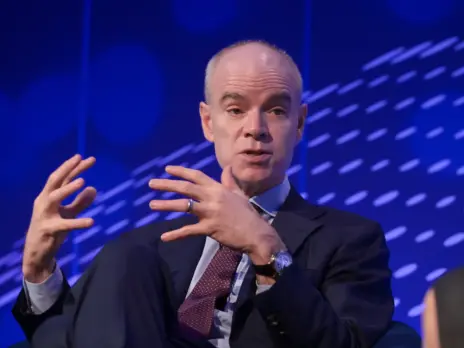
The Daily Telegraph has once again been refused permission to appeal in the case in which it was ordered to pay writer and academic Dr Sarah Thornton £65,000 in damages for defamation and malicious falsehood over a review of her book by critic Lynn Barber.
Former Lord Justice Sir Richard Buxton rejected the newspaper’s initial application for permission to appeal in December last year, saying that it did not raise serious legal issues but was in essence an attack on the findings fact made by Mr Justice Tugendhat.
The newspaper’s renewed application for permission to appeal was rejected at a hearing on Tuesday by Lord Justice Laws, who reached his decision after hearing argument from David Price QC, for the newspaper, and Justin Rushbrooke, for Thornton.
The newspaper had argued that it should be allowed to appeal against the findings of the trial court and that the Court of Appeal could and should review and overturn those findings for reasons which included:
- They involved errors of legal principle, some of which had wider significance in relation to the proper protection of freedom of expression;
- They were the product of erroneous reasoning;
- The context was the offer of amends regime, the efficacy of which the court should be astute to protect – but that the judge’s approach tended to undermine its efficacy;
- Barber, a well-known journalist of 44 years’ standing, had been found guilty of dishonesty. Mr Price said in his skeleton argument: “There are many dicta to the effect that where a party has been acquitted of dishonesty at first instance the decision should not be displaced except on the clearest of grounds. The corollary is that the Court will be more willing to review a finding of dishonesty, particularly where, as in the present case, it is in such harsh terms and against a person who has successfully pursued her career for so many years without any similar finding.”
- Where the issue is which of two or more alternative scenarios was the most probable on the basis of uncontested primary facts, the Court of Appeal would be willing to overturn a trial judge’s findings where he failed to take into account relevant factors that impacted on probability and/or overestimated the factors which made the newspaper’s case less likely and/or underestimated the factors that made it more likely.
Implications for freedom of expression
Thornton sued the Daily Telegraph for libel and malicious falsehood over a November 2008 Daily Telegraph review by journalist Lynn Barber of her book “Seven Days in the Art World”.
She complained that Barber, a member of the 2006 Turner Prize jury, had falsely alleged that she had not interviewed her for the book – they had had a telephone conversation, which the trial judge held was an interview – and that by showing her interviewees what she had written and inviting their comments before publishing the material she gave them “copy approval”.
The case went to High Court after Dr Thornton rejected a qualified “offer of amends” from the newspaper’s publisher, Telegraph Media Group Ltd. Mr Justice Tugendhat’s decision, on July 26 last year, was believed to be the first time in decades that a court had made a finding of malice against a reviewer.
Telegraph Media Group said at the time: “We are dismayed by this judgment. We believe the findings that Lynn Barber was reckless and motivated by malice are erroneous, and have adverse implications for freedom of expression.”
The rejection by Lord Justice Laws of the newspaper’s application for permission to appeal marks the end of the legal road as far as the case is concerned.
But it also leaves the media with problems. The newspaper argued in its application for permission to appeal that Thornton, who was represented on a no-win, no-fee Conditional Fee Agreement, had run up costs of almost GBP1.3 million by going to trial to obtain the same remedy over the sole defamatory allegation of which she complained that she could have obtained by accepting the newspaper’s offer of amends.
Those costs include 100 per cent success fees of about £460,000 and an ATE insurance premium of £365,500.
The newspaper also argued that offer of amends regime was intended to bring about quicker and less expensive settlements of defamation actions, but that its operation has been thrown into doubt by Mr Justice Tugendhat’s decision.
That question marks remains in place as a result of the Court of Appeal’s refusal to re-examine the issue. The decision also placed a question mark over the robustness of the comment a critic may make, the newspaper said.
It had also argued that Mr Justice Tugendhat’s conclusion “albeit with some hesitation” that Ms Barber knew all along that Dr Thornton had interviewed her meant that the journalist had “hit upon the idea of inventing an allegation that (Dr Thornton) had never interviewed her, knowing that it was libellous and could easily be proved to be false”.
It argued: “This is a bizarre finding that is the product of faulty reasoning and errors of principle.”
Email pged@pressgazette.co.uk to point out mistakes, provide story tips or send in a letter for publication on our "Letters Page" blog






